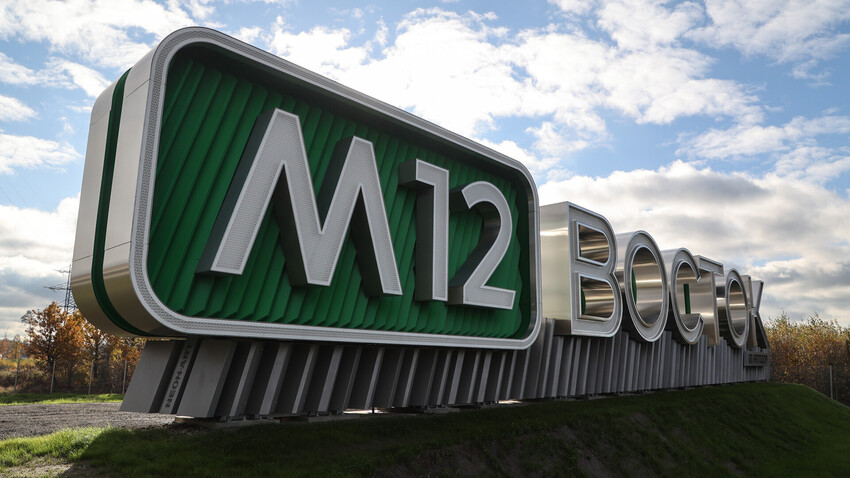
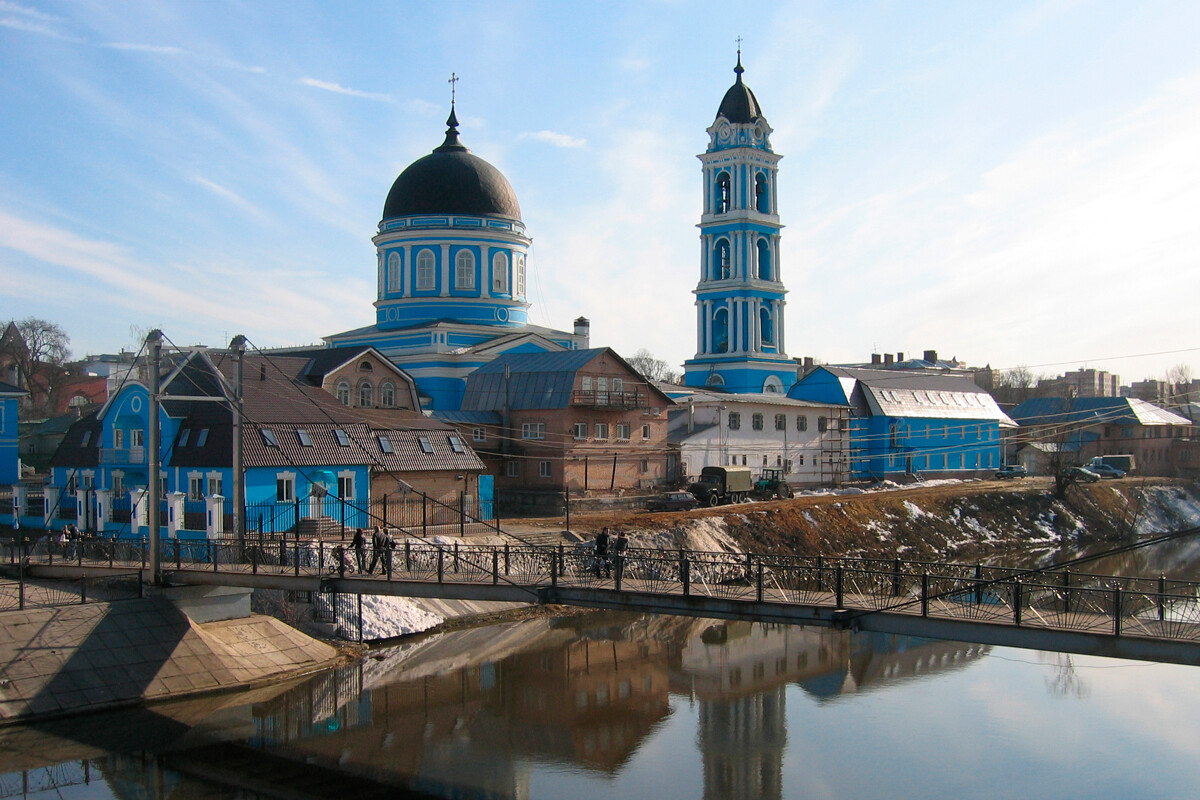
The small town of Noginsk stands on the River Klyazma and is just 50 kilometers from Moscow. This old town (founded in the 14th century) had its heyday in the 19th century, when textile mills began to open there one after another. Today, the Novotkatskaya Factory building, designed in Art Nouveau style by architect Alexey Kuznetsov, is a reminder of that time. The factory used to belong to mill owner Arseny Morozov.
Another attraction in the town is the Epiphany Cathedral, which houses the relics of Holy Martyr Konstantin Bogorodsky.
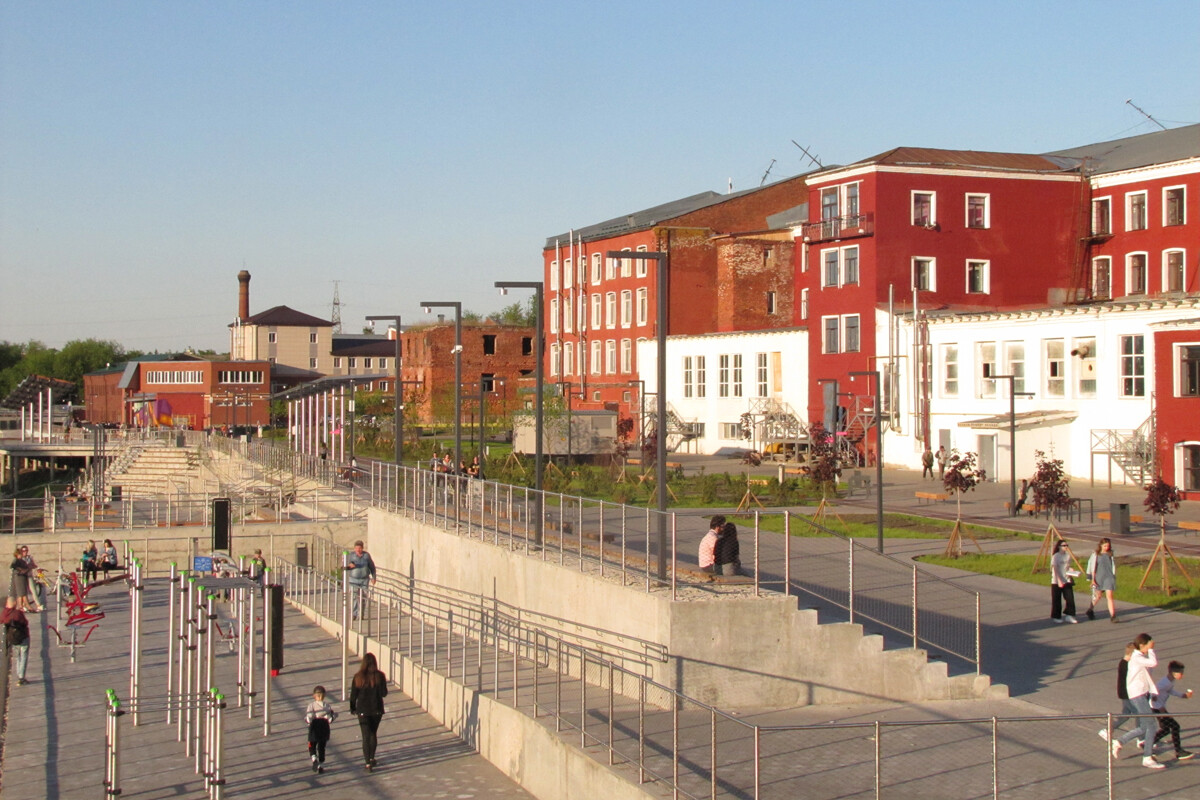
This mill town went down in history as the place where the ‘Morozov Strike’ took place. It was one of the largest strikes Russia had ever seen and was staged by the workers of Timofei Morozov's Nikolskaya Manufactory. Nowadays, the factory buildings along the embankment of the Klyazma have become part of a fashionable public space for promenades and recreation.
Also, many soccer fans visit Orekhovo-Zuyevo: What is believed to have been Russia's first soccer club was established there. Incidentally, it still exists and is now called ‘Znamya Truda’ (‘Banner of Labor’) FC.
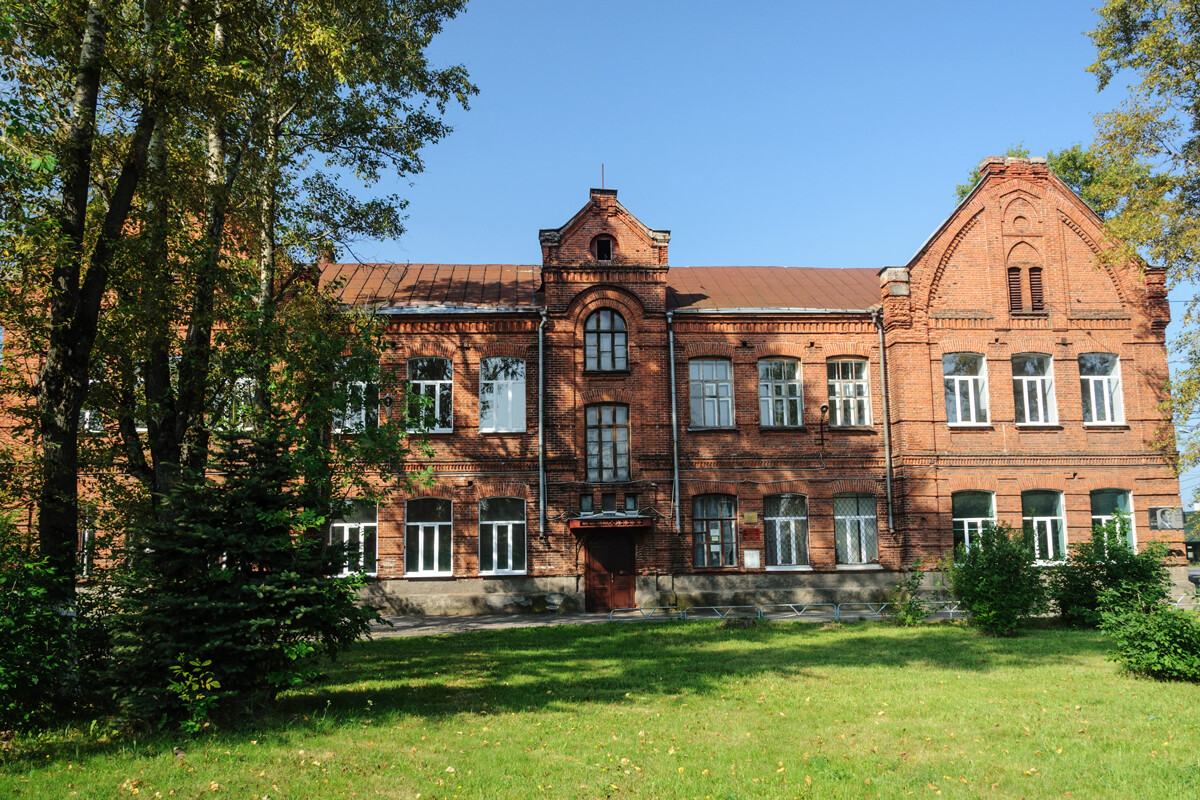
If you think Tula is too far to go to try ‘pryaniki’ (honey spice cookies), you can go to Pokrov, instead, which is just 85 km from Moscow. Once there, you will quickly find yourself at the local factory choosing which of the sweet confections to take home with you - ‘pryaniki’ with condensed milk and walnuts or pretzel-shaped ginger ‘pryaniki’. There are, indeed, many varieties: glazed or unglazed, shaped like birds and animals, with inscriptions and, of course, with all sorts of fillings!
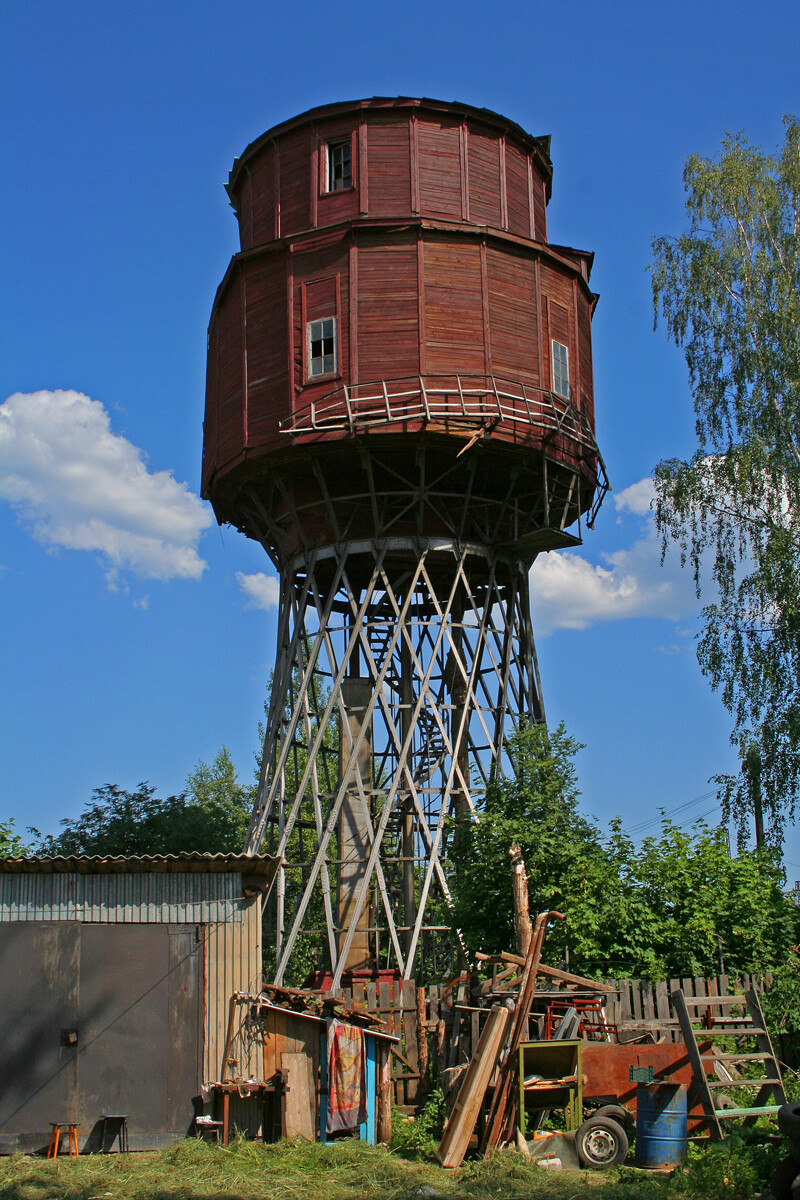
The town was extolled by Venedikt Yerofeyev in his poem in prose 'Moscow-Petushki'. One of Vladimir Shukhov's eight surviving hyperboloid water towers stands there. The 70-meter tower was built in 1927 as a water refilling station for locomotives.
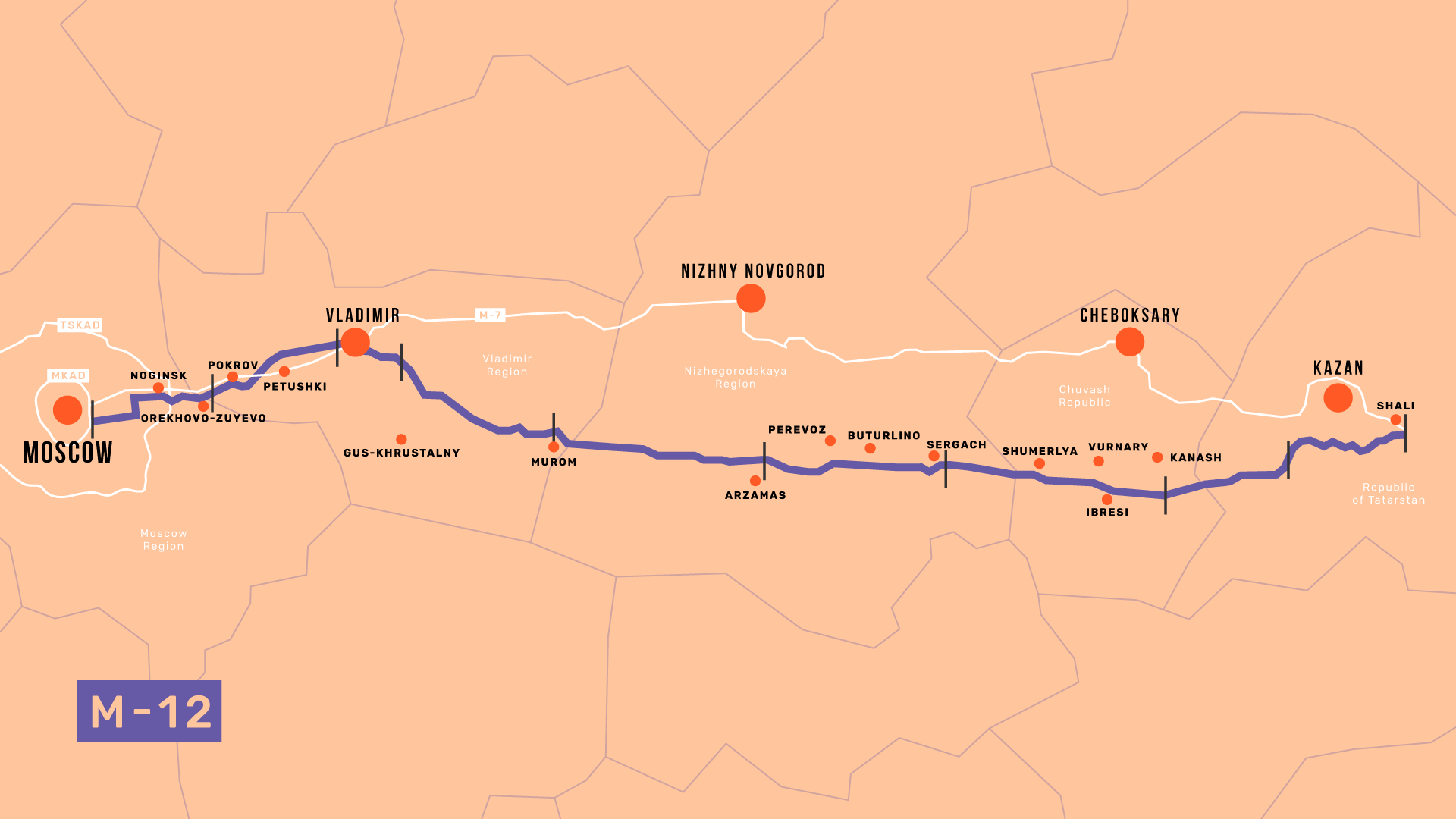
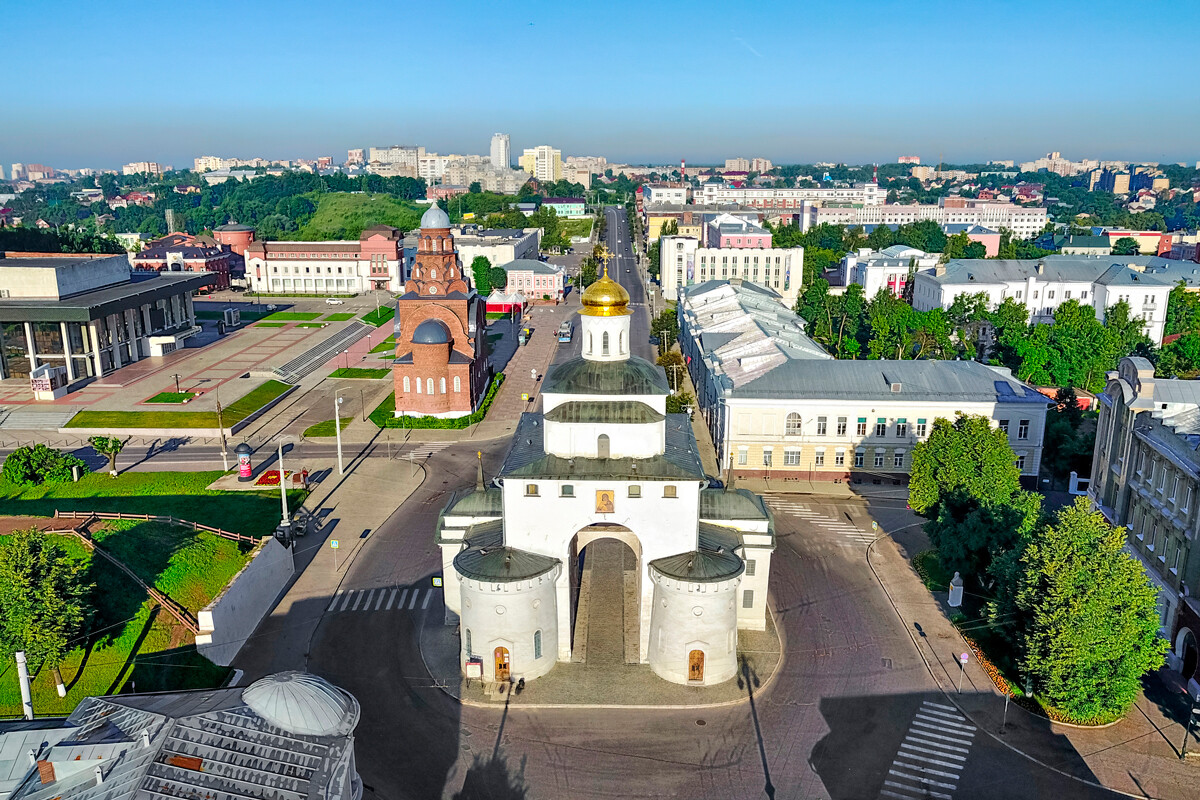
This is one of the main cities of the Golden Ring, in which ancient churches and buildings coexist with modern ones. In the space of just a few hours, you can travel back in time and see the ‘Golden Gate’ and cathedrals of amazing beauty. They include the Dormition Cathedral with surviving frescoes by Andrei Rublev, as well as the Cathedral of St. Demetrius decorated with white stone carving.
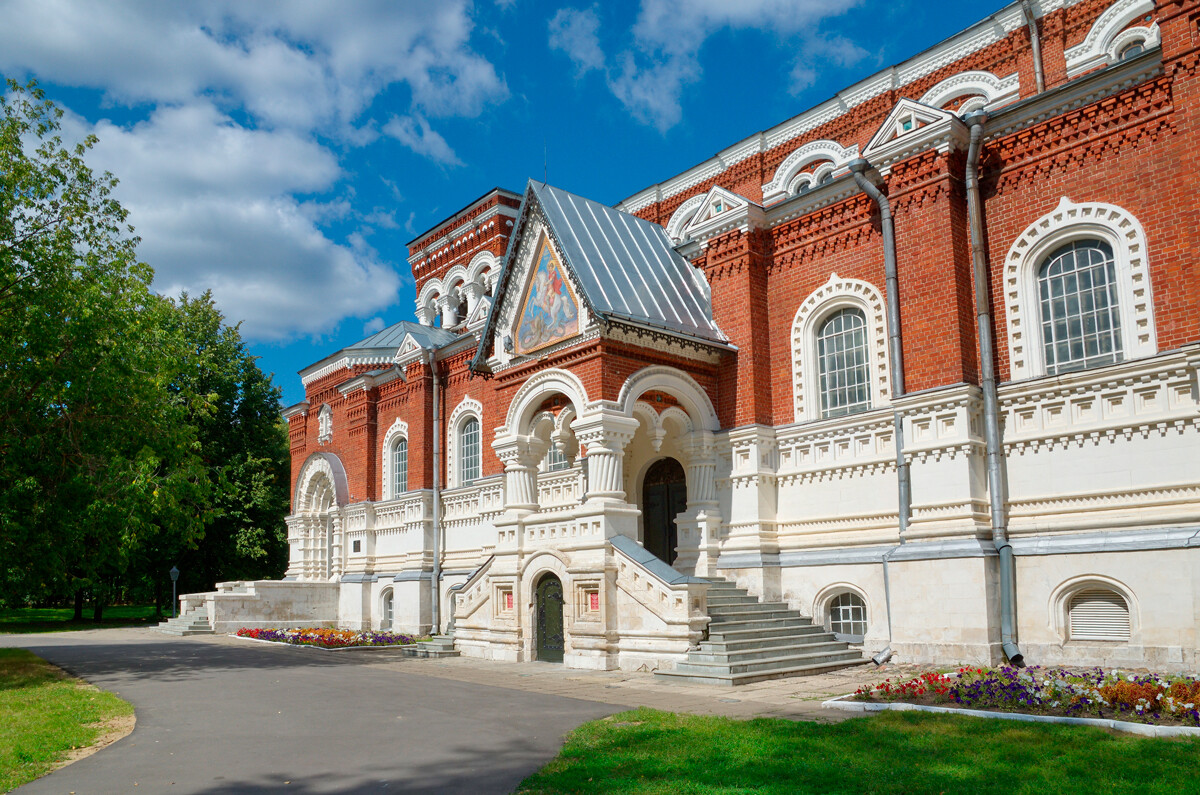
The local museum in this town, located within St. George's Cathedral, displays cut glass from the showpiece collection of the Maltsov Manufacturing Plant, as well as the work of contemporary glass makers. It is also worth taking a look at the church itself, which houses works by famous Russian artist, illustrator, architect and set designer Viktor Vasnetsov.
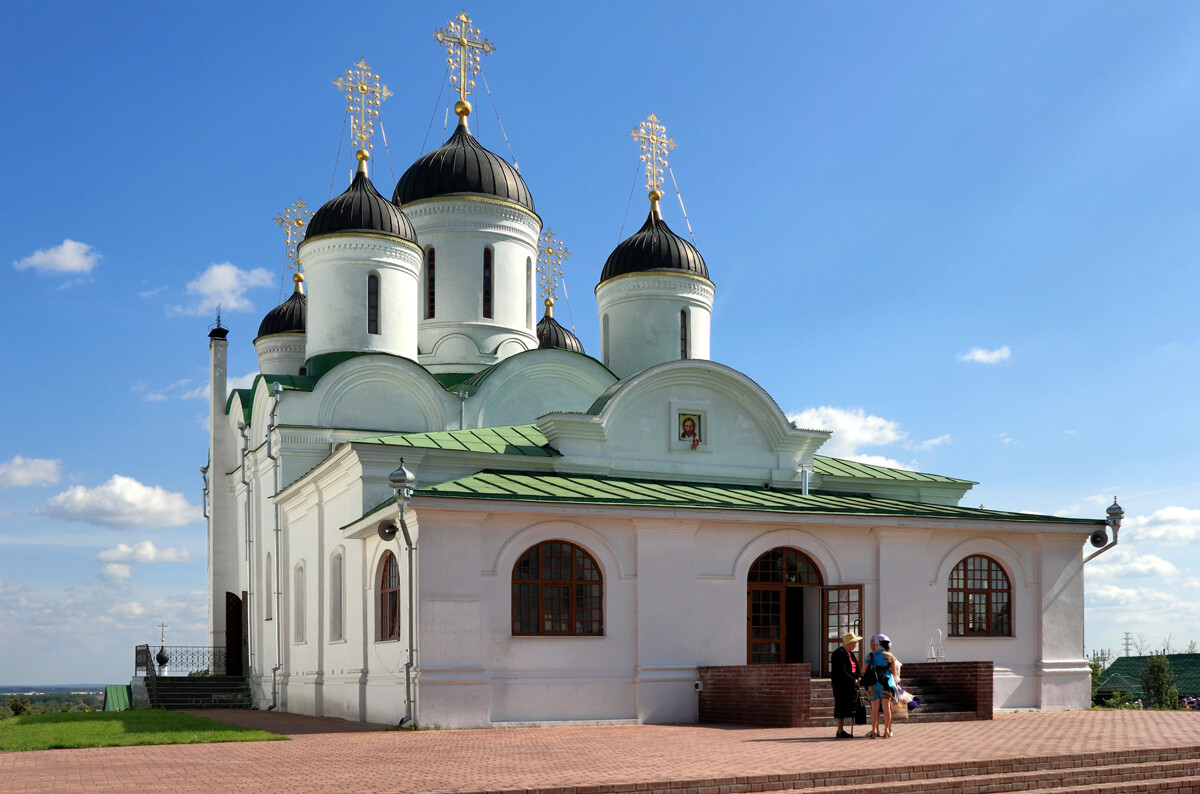
One of Russia's oldest monasteries is located in this town - the Monastery of the Transfiguration of the Savior, founded at the turn of the 10th and 11th centuries. Ilya Muromets, the warrior hero of Russian folk epics hailed from there - in Karacharovo (one of the neighborhoods of the town), there is a spring that, according to legend, bubbled up when the hooves of his horse struck the ground. A wooden chapel has since been put up beside it.
Having taken in the local attractions, one can fortify oneself with some of the famous Murom bread rolls of the type known as ‘kalach’ - Catherine the Great is said to have been fond of them.
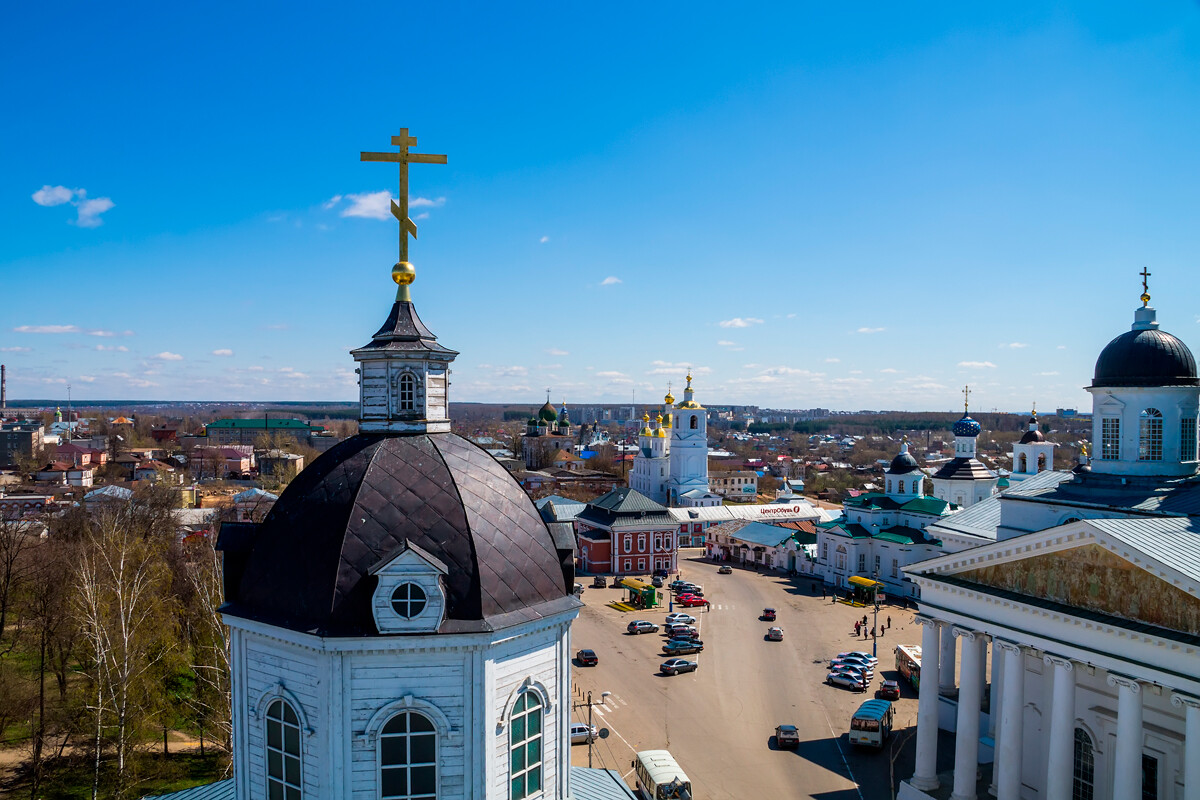
The enormous Cathedral of the Resurrection, one of this town's principal sights, took almost 30 years to build. Everything in it seems a little familiar and that is not surprising. The architect was Mikhail Korinfsky, a pupil of Andrei Voronikhin who designed St. Petersburg's Kazan Cathedral. The wall paintings are by Nikolai Alekseyev, who executed paintings for St. Isaac's Cathedral.
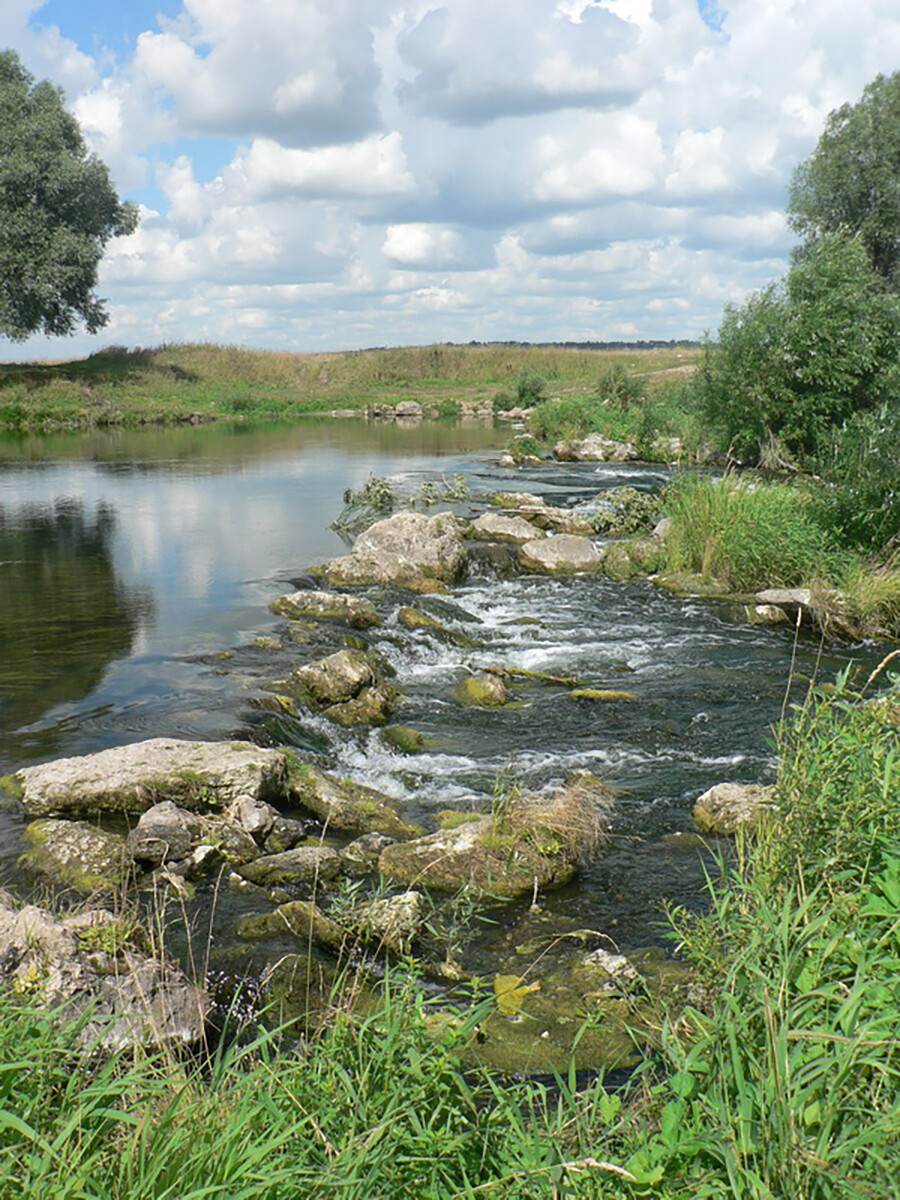
The settlement on the River Pyana has been known since the 16th century and owes its name to a river crossing on the local trade route. For a long time, it was known as Pyansky Perevoz (literally: ‘Pyana Ferry’) and only got its shortened modern name in 1962.
There aren't a lot of things to see in this town, but one of them is the Pyana rapids. The riverbed has been straightened in the town itself, but there is a stretch of river with rapids by a bridge not far from the entrance to the town that has become a favorite with fans of water tourism.
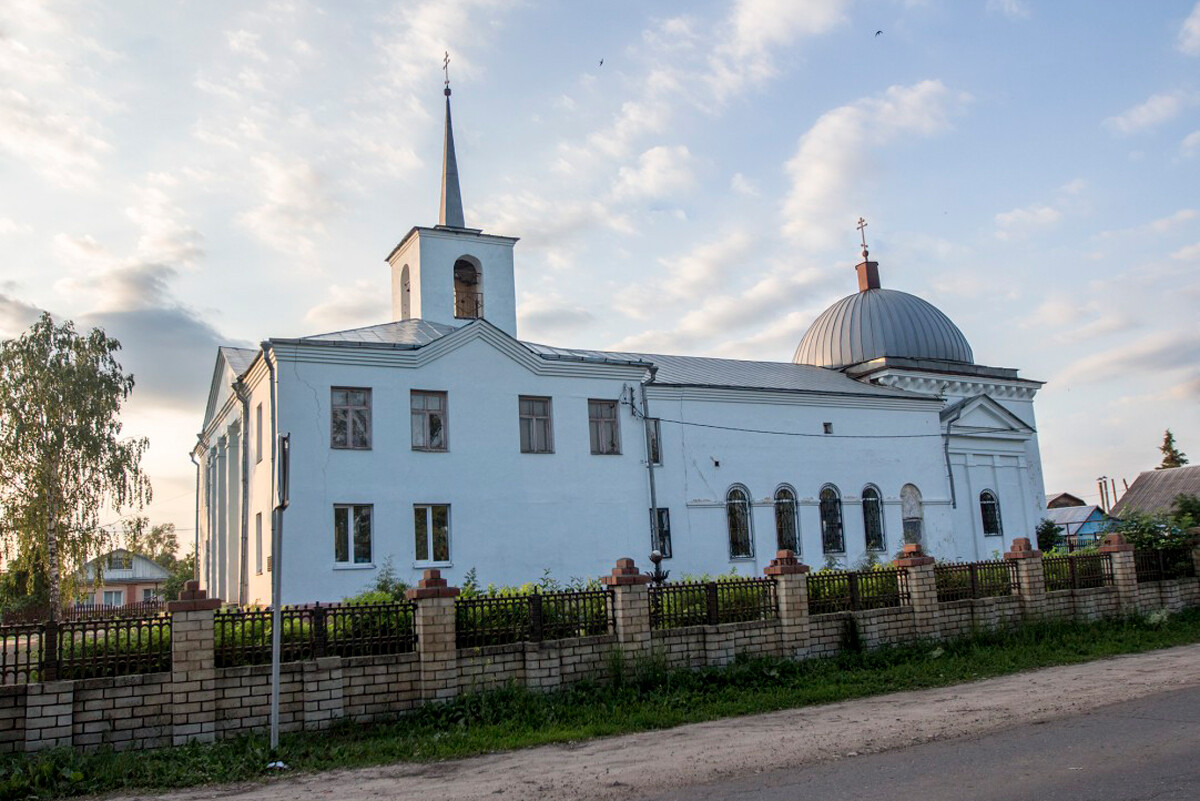
Ivan Grozny once gave these lands to Voyevoda Fyodor Buturlin for the part he played in the Kazan campaign.
One of the noteworthy local architectural attractions is the mid-19th century Church of Sergius of Radonezh. It is a cold building, so, before the Bolshevik Revolution, it only hosted church services at warm times of the year and, in winter, services were held in its heated refectory.
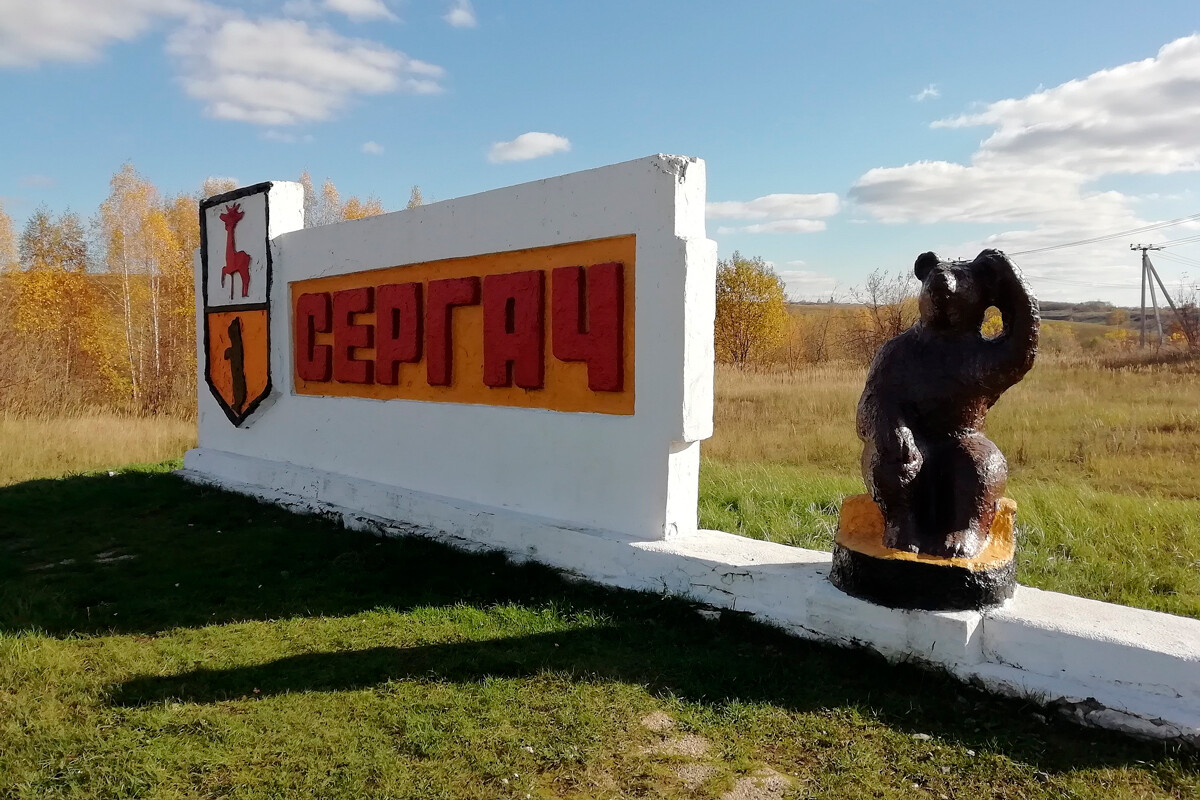
At the local history museum in this town you can learn more about the bear trade that the inhabitants of Sergach were involved in: The local trained bears were literally stars - their fame even spread to France and Germany.
There is also an architectural gem there: a railway station building in Empire style designed by and Russian and Soviet architect Alexey Shchusev.
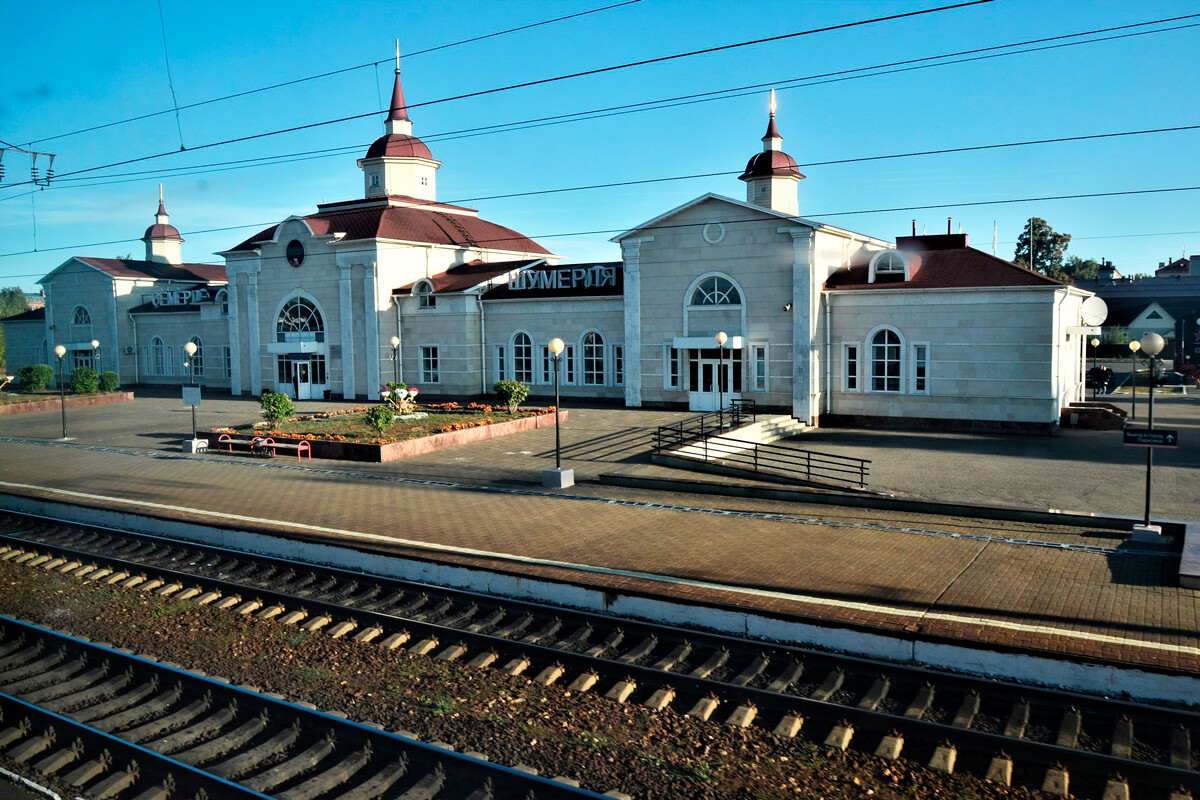
This town’s local railway station was built in 1916 to a standard Alexey Shchusev design. Nearby is one of the oldest structures in the town - the water tower.
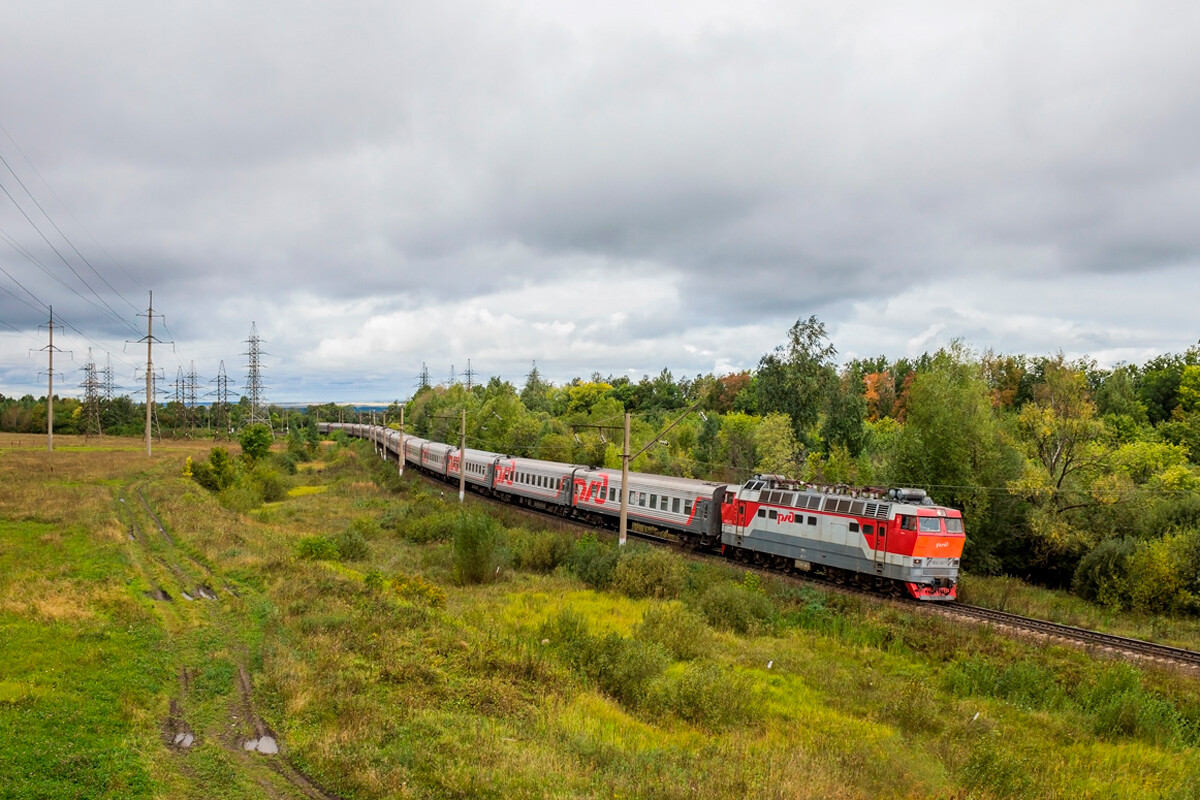
The small Church of St. George was errected in Vurnary the late 1990s. Before the start of construction, an icon of the Mother of God of Three Hands was discovered at this spot - the image is kept in the church and greatly cherished.
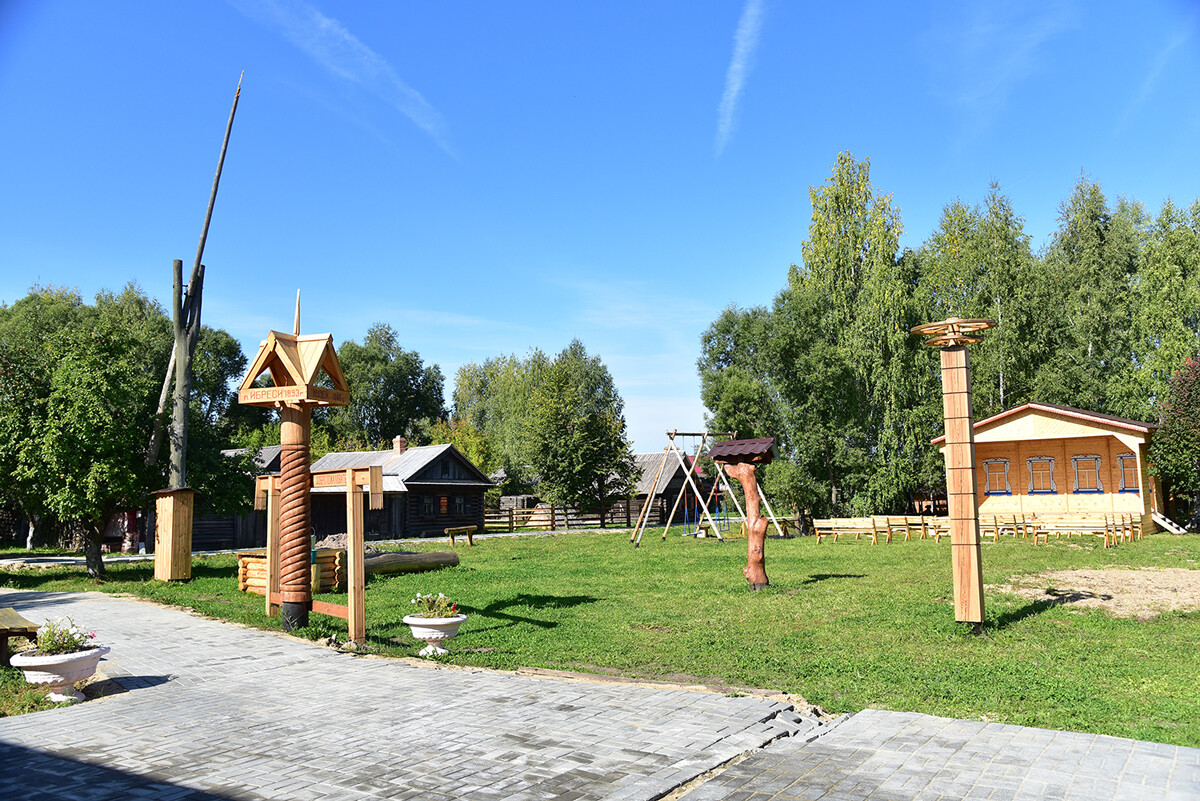
The local open-air ethnographic museum features traditional Chuvash buildings - peasant farmsteads, a flour mill and a granary. And visitors can also view a display of applied and decorative arts and national costumes and ornaments.
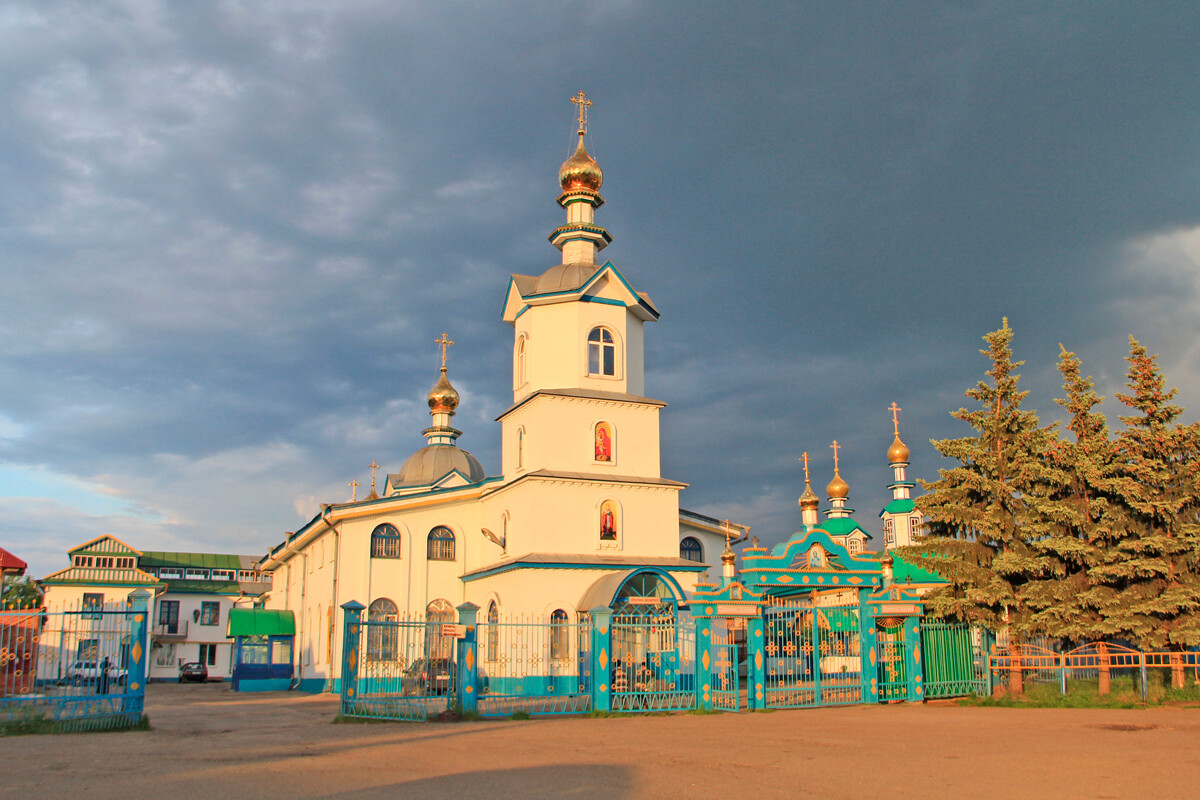
The wooden Church of St. Nicholas was built in Kanash in 1901. In Soviet times, it was not closed down and continued to operate. In 1987, it was rebuilt in brick. The highlight of its architectural design is an amazing four-tiered bell tower.
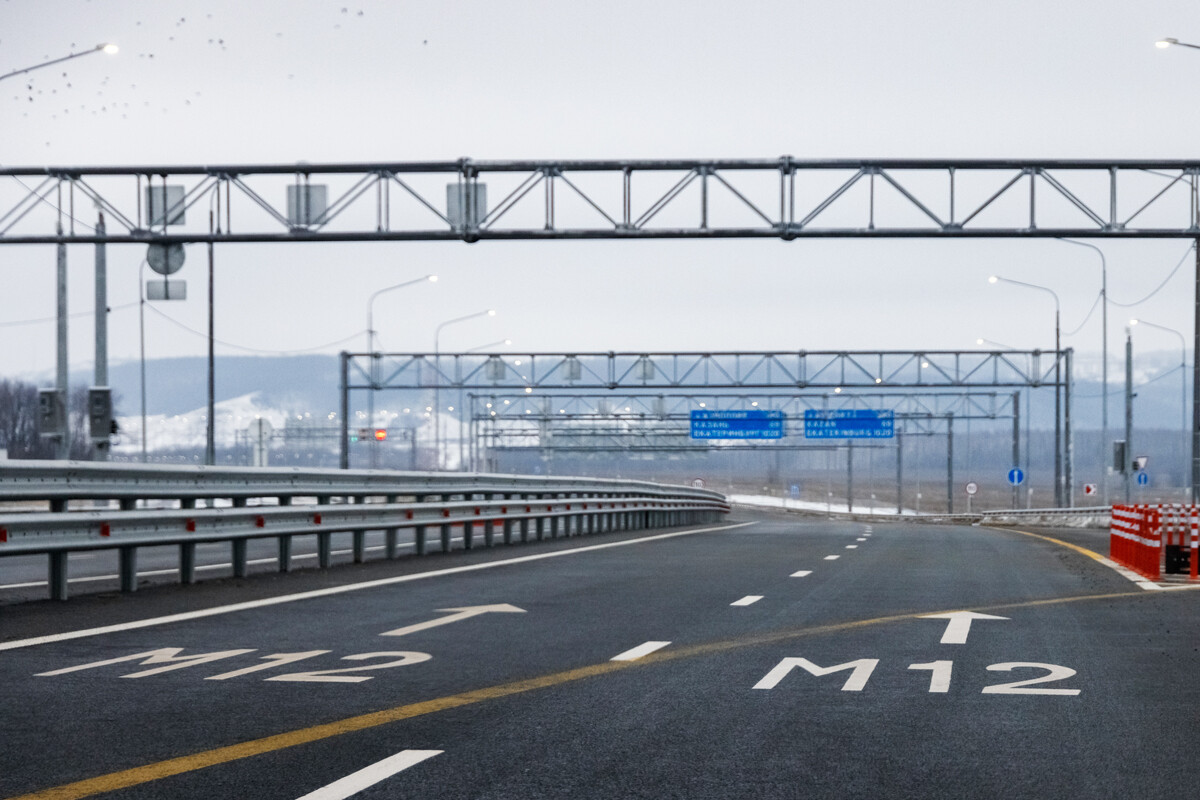
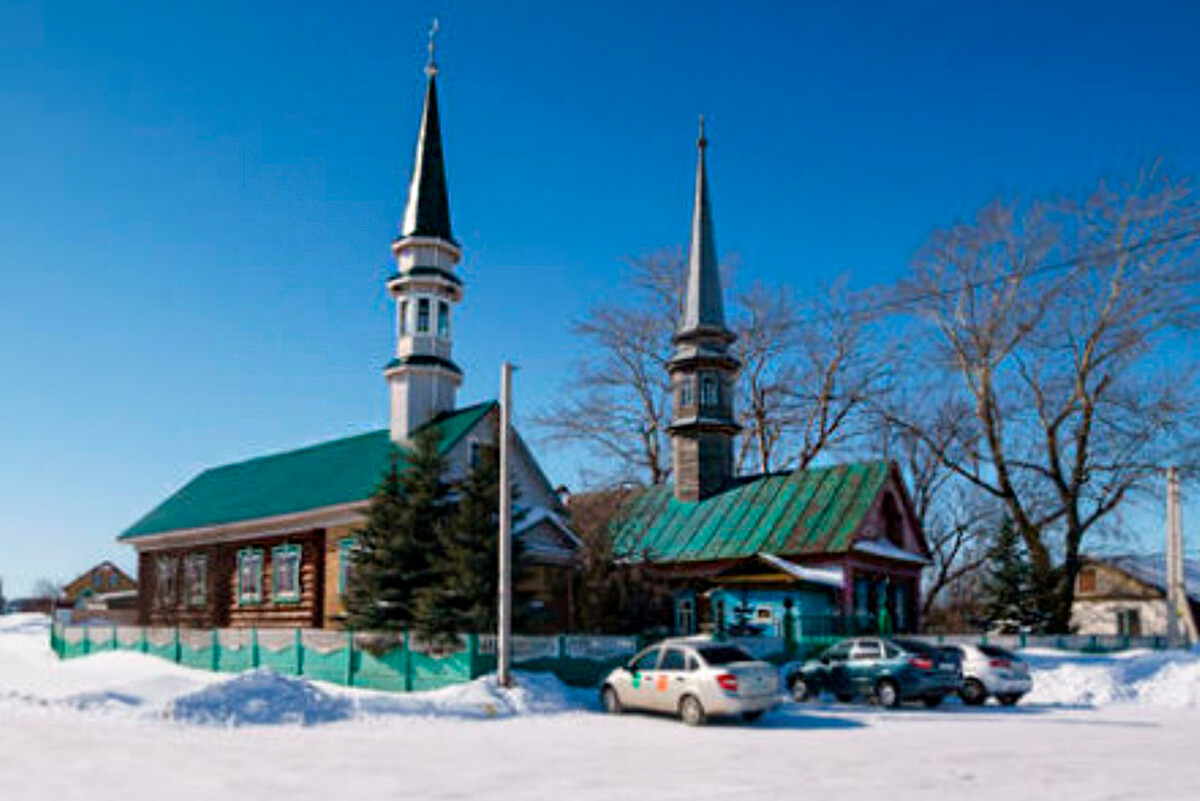
One of Tatarstan's oldest mosques can be found in this village - it was built by local residents at the end of the 19th century. The Zahir mosque has a Museum of the Koran with a display of books, prayer books and manuscripts.
Dear readers,
Our website and social media accounts are under threat of being restricted or banned, due to the current circumstances. So, to keep up with our latest content, simply do the following:
If using any of Russia Beyond's content, partly or in full, always provide an active hyperlink to the original material.
Subscribe
to our newsletter!
Get the week's best stories straight to your inbox